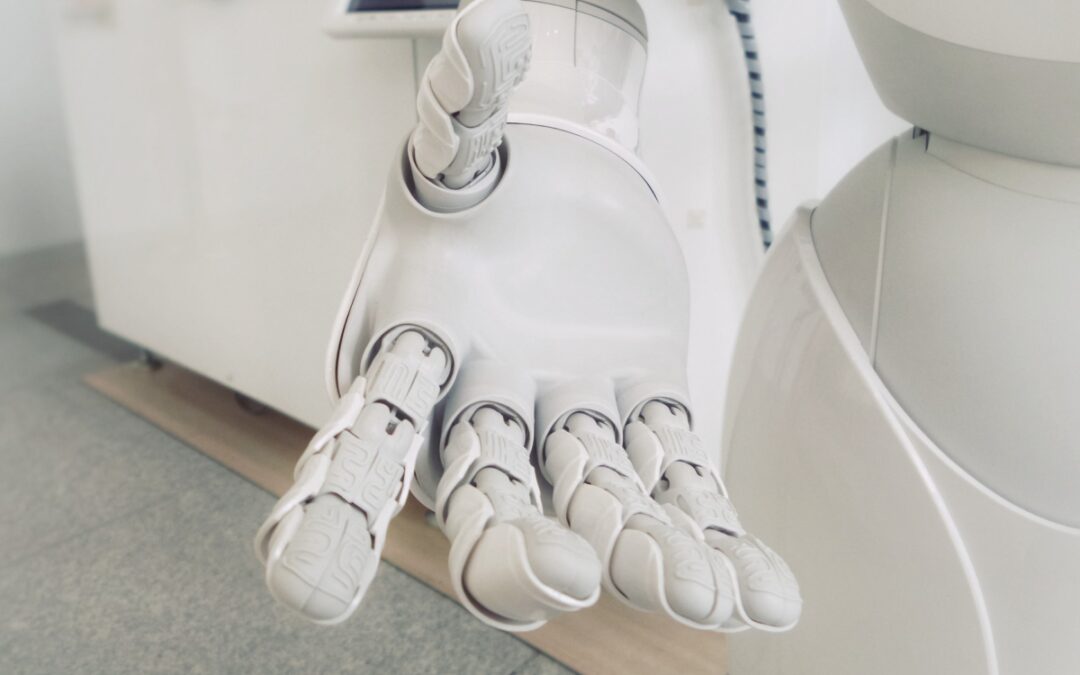On March 8, 1968 Capt Kirk was replaced by AI on Star Trek. We should have all seen this coming. As with all Star trek episodes, our humanity eventually triumphed. AI will definitely change our world, and many jobs will join the ranks of cobbler, blacksmith, and town crier. It also creates new opportunities. I personally do a form of mixed media art using poetry and images. MidJourney has given me the opportunity to generate images that don’t exist in the real world. I still paint and do actual photography, but some things are really better to do with artificial intelligence. ChatGPT is a great tool that just needs some guidelines for it’s use. Eventually, it will create new jobs that don’t even exist today.
As AI continues to evolve, the concern over job displacement and worker replacement has become more prevalent. However, it is crucial to approach this topic with nuance and consider the broader implications of AI integration in the workplace.
Understanding Its Capabilities
AI refers to the development of computer systems capable of performing tasks that typically require human intelligence. These systems can analyze vast amounts of data, recognize patterns, and make decisions based on their findings. Artificial intelligence technologies include machine learning, natural language processing, and robotics.
Artificial Intelligence’s Impact on the Workforce
Automation and Job Displacement
One of the main fears surrounding AI is its potential to automate jobs traditionally performed by humans. Repetitive and routine tasks are especially susceptible to automation, leading to concerns about unemployment rates. However, studies have shown that while AI may replace certain jobs, it also creates new opportunities in other areas.
New Job Opportunities
AI’s integration into industries can lead to the creation of new roles and job opportunities. As technology advances, there is a growing demand for AI specialists, data scientists, and AI trainers. Additionally, AI can augment human capabilities, allowing workers to focus on complex problem-solving, creativity, and innovation.
Artificial Intelligence as a Collaborative Tool
Instead of viewing AI as a replacement for workers, it is more accurate to see it as a collaborative tool that complements human skills. AI systems can assist in data analysis, decision-making, and streamlining processes, empowering workers to be more efficient and effective in their roles.
The Importance of Human Skills
While AI excels in certain tasks, it still lacks essential human skills that are valuable in various professions. These skills include emotional intelligence, creativity, critical thinking, and complex problem-solving.
Emotional Intelligence and Creativity
Emotional intelligence, such as empathy and interpersonal skills, is vital in roles that require human interaction. Similarly, creativity is a uniquely human trait that fuels innovation and drives progress in many fields.
Critical Thinking and Problem-Solving
AI systems are designed to find patterns and make decisions based on existing data. However, critical thinking and problem-solving skills are essential for handling novel situations and making judgment calls in ambiguous circumstances.
The Need for Reskilling and Upskilling
To thrive in an AI-driven world, workers need to adapt and acquire new skills. Reskilling and upskilling initiatives are essential to prepare the workforce for the changing job landscape. By investing in lifelong learning, individuals can enhance their employability and stay ahead in the rapidly evolving job market.
Ethical Considerations and the Human Touch
As AI becomes more integrated into various industries, ethical considerations arise. It is essential to ensure that AI systems are unbiased, transparent, and accountable. Additionally, human oversight is crucial to prevent ethical dilemmas and maintain a balance between technology and human values.
AI as a Catalyst for Innovation
Rather than replacing workers, AI has the potential to fuel innovation and drive economic growth. By automating repetitive tasks, AI frees up human resources to focus on more complex and creative endeavors. This collaboration between humans and AI can lead to groundbreaking advancements in various fields.
The Future of Work
The future of work lies in the symbiotic relationship between humans and artificial intelligence. While certain jobs may be automated, new roles will emerge, requiring a combination of skills. Adaptability, continuous learning, and embracing technological advancements will be key to navigating the changing job landscape.
Artificial intelligence is not poised to simply replace workers but rather augment their capabilities and transform the nature of work. By understanding the strengths and limitations of artificial intelligence, we can leverage its potential to create a more efficient and innovative workforce. Embracing lifelong learning, reskilling, and upskilling will be essential for individuals to thrive in an artificial intelligence driven world.
FAQs
- Will AI completely eliminate all jobs?
- No, while artificial intelligence may automate certain tasks, it also creates new job opportunities and augments human capabilities.
- Which industries are most affected by AI integration?
- Artificial intelligence integration can impact various industries, including manufacturing, healthcare, finance, and transportation.
- What skills will be in demand in an AI-driven world?
- Skills such as critical thinking, creativity, emotional intelligence, and data analysis will be highly valuable.
- How can workers prepare for the artificial intelligence revolution?
- Workers can prepare by investing in lifelong learning, reskilling, and upskilling to adapt to the changing job landscape.
- What role does ethics play in AI development?
- Ethics is crucial in ensuring unbiased and accountable artificial intelligence systems that align with human values and prevent potential harm.



